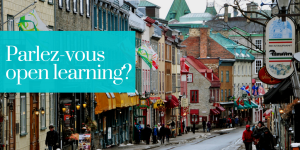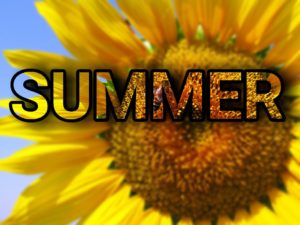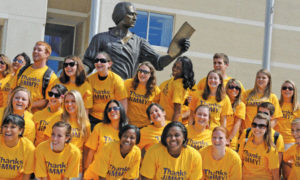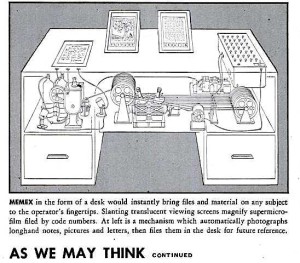Way back when I was in my twenties, I traveled to Quebec with some friends. I felt so sophisticated, so grown-up as I tried to use my high-school-plus-one-semester-of-college French language skills. I could order (safely) from a menu; navigate hotel check-in; count money out for a purchase; and interact cordialement with people I met. Of course, it was an illusion–that heady feeling of fluency. I was not then nor have I ever been fluent in French. I wasn’t even proficient. But I tried and it felt good to push myself that way.

So it is with open learning. Over the years I have acquired some of the vocabulary, grammar, and idioms needed to converse in this language, yet I know I am far from proficient.
My goal in joining #OpenLearning17 is simply to become more conversant. At the moment, I have a Twitter account that I use frequently to connect with #twitterstorians, #publichistorians, #genedadministrators (ok, there’s not really a hashtag for that yet, no one wants to admit to being one I guess), and #civicengagement folks as well as a few others. I routinely incorporate digital humanities projects into my classes, and I have a blog that I started one day when I was wondering about my personal brand, whatever that is. Like many academics, I often walk around composing blog posts in my head, but by the time I get in front of my computer, *poof*. Hopefully, this cMOOC will help me find the right words.
How about you? Parlez-vous open learning?




